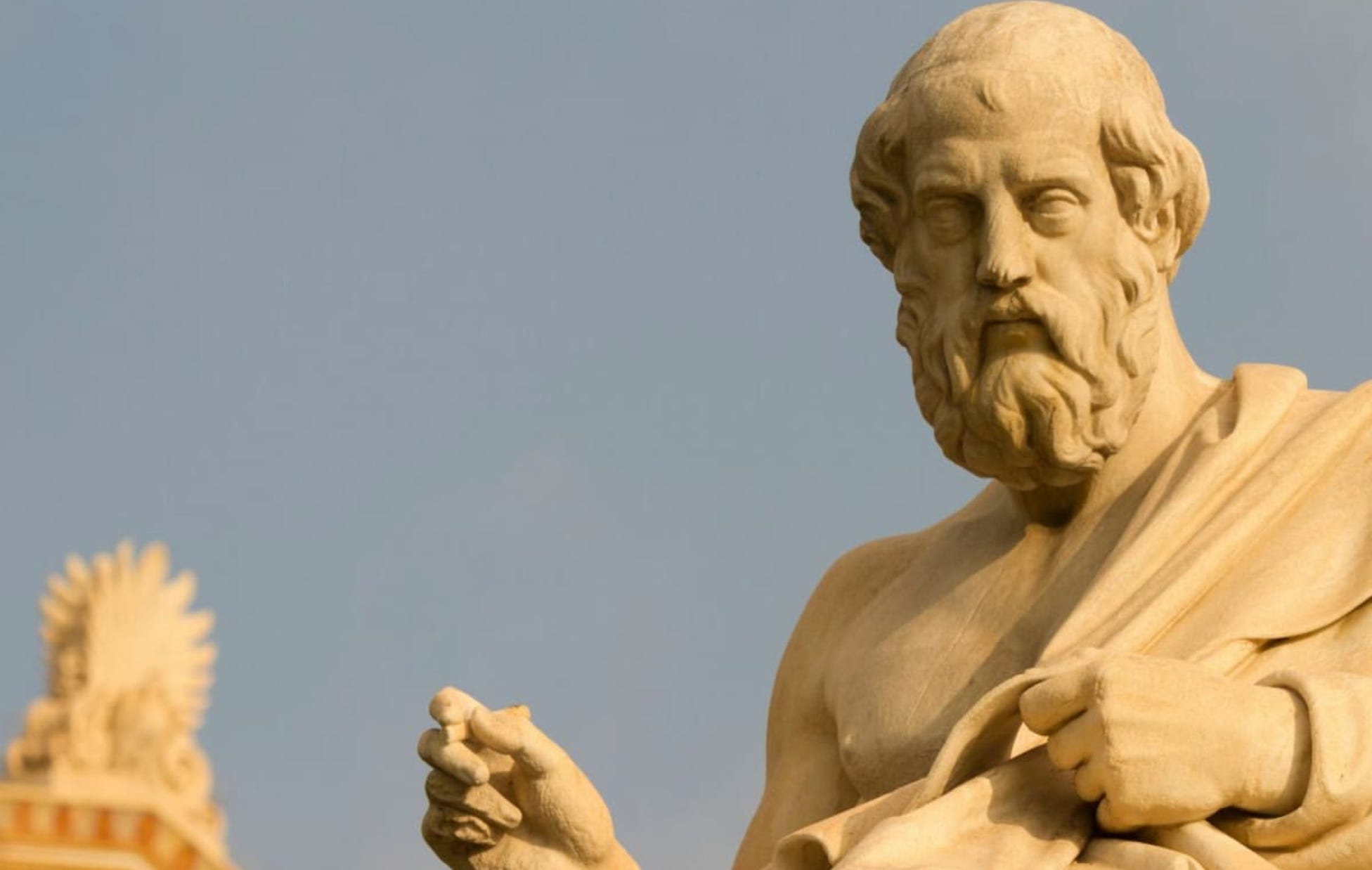
Dear Classical Wisdom Reader,
We’re going to do a philosophical deep dive today, dear reader! It’s time to dust off that old thinking cap, wrinkle the brow and exercise that most important of muscles: the brain.
And what better way to do that than discuss the mind itself and how learning works... at least according to Plato.
But before we give our noggin a joggin’, a quick reminder that you can still get our beautiful hardback first edition anthology in time for the holidays. If you haven’t already, take a moment to learn about this important book that has been 100 years in the making...
Now... what is the mind? And what did the ancients say on how we think?
Please enjoy!
All the best,
Anya Leonard
Founder and Director
Classical Wisdom
What is the “Mind”?
By Visnja Bojovic
It is old news that ancient thinkers were constantly questioning human learning, morals and behavior. Greek perceptions of the mind or soul were very different from contemporary views, which can make them all the more difficult to grasp for the modern reader.
However, we will make an effort to understand quite a complex concept in the ancient Greek thought: mind. Considering that the mind is quite a broad topic, I decided to focus on what it meant to just one philosopher—Plato.
Starting as early as Homer, ancient thinkers began differentiating learning through perception or sensation from the learning that comes through awareness. Even though we can claim with certainty that this distinction existed, these two ways of learning were never clearly defined, and a lot of things about them remain obscure.
One thing we do know for sure is that learning through perception or sensation in Greek was called aisthesis (αἴσθησις) and that learning through awareness was always related with nous (νοῦς).
The meaning of nous depended on the concept it represented, as well as the philosopher who used it, but, roughly put, we can say that it meant ”mind”.
Aristotle claimed that the Presocractic philosophers did not make this distinction between learning through the mind and learning through perception. There were, however, some attempts.
Heraclitus, for example, in his teaching about logos, agrees that the senses are unreliable, but he does not clearly explain how logos (the truth, the essence) is revealed to us. He does relate it with nous, though.
Plato sheds new and slightly clearer light on the concept of learning through his theory of knowledge as presented in Phaedo. He puts the soul in the center of this theory, making all cognitive activity the result of the operation of the soul. He characterizes sensation as the perception of the soul through the body, whilst reasoning is made by the soul itself.
However, in Phaedo, this distinction comes through in terms of the objects perceived/understood. There is no further clarification regarding how these processes function nor the differences between them.
In the Republic, on the other hand, these concepts reappear in a much more complex manner through Plato’s famous analogy of the divided line (γραμμὴ δίχα τετμημένη). In a short discourse (509d-511c), Plato’s Socrates presents an epistemological theory that later proved fundamental to Plato’s metaphysics. In this discourse, he describes the four levels of existence and, more importantly, the four corresponding ways of knowing these levels of existence—i.e., the four ways of accessing knowledge.
Take your knowledge of the Classics to the next level… Become a Member and unlock all our resources: Ebooks, podcasts, live events and more!
Plato visualizes this as a line that is divided into two, unequal parts, which are then further divided into two parts each. These four parts represent four different states of mind, as well as four ways of acquiring knowledge. The fact that these parts are unequal is important.
The first part, the smaller one, consists of the visible world, the world we perceive through senses, or the physical world, if you will. This physical world is just a series of passing reflections of the other world, the world of ideas.
This corresponds with the lowest form of learning, called eikasia (εἰκασία) (opinion-imagination). In this realm, the eye makes guesses whilst observing the likenesses of the visible things. Another part of this world is pistis (πίστις) (opinion-belief), in which the eye makes predictions based upon observing physical, visible things.
For us, the second part is far more relevant and interesting, because in it, Socrates claims that the knowledge we have of the forms is of a much higher importance than the knowledge of the particulars of the perceptual world. He refers to this as dianoia (διάνοια), which Plato characterizes as knowledge (thought) that recognizes some ideas and makes hypotheses, similar to mathematical reasoning.
The highest realm and the highest form of knowledge is our noesis (νόησις). This is considered philosophical understanding, containing ideas and truth given by the Good itself.
It is not accidental that noesis is represented by the largest part of the line, given that Plato thought that few people understood the world of ideas. This is elaborated further in his allegory of the cave, which most readers are probably already acquainted with. Understanding noesis can make it much easier for us to understand Plato’s epistemological theory.
Through reading about this, we may (and probably will) agree with Socrates that we know that we know nothing, as the highest truth is quite difficult to grasp. However, learning about the questions that the ancient philosophers were discussing and grasping the concepts that they came up with will hopefully take us one step closer to understanding of noesis itself and the greater world in which we live.
Más info en frasco@menadelpsicologia.com / Tfno. & WA 607725547 Centro MENADEL (Frasco Martín) Psicología Clínica y Tradicional en Mijas Pueblo #Psicologia #MenadelPsicologia #Clinica #Tradicional #MijasPueblo
*No suscribimos necesariamente las opiniones o artículos aquí compartidos. No todo es lo que parece.

No hay comentarios:
Publicar un comentario